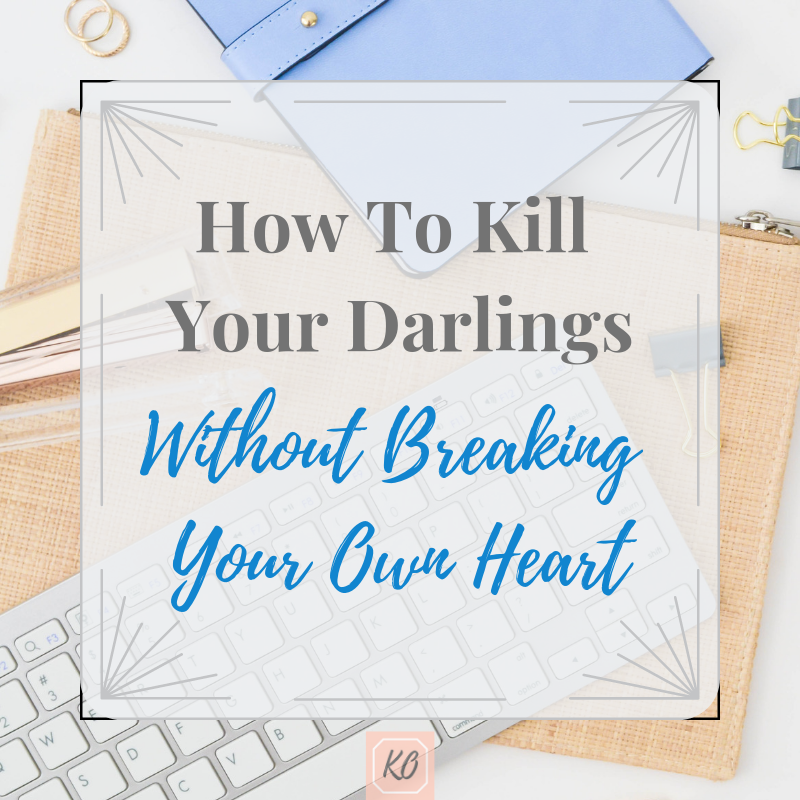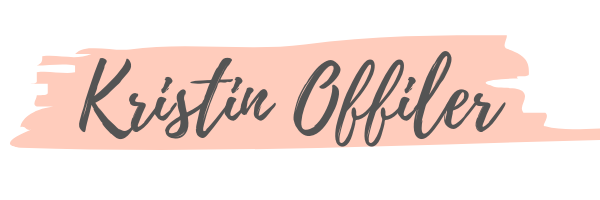
When you write something good, you know it’s good.
It feels like a big YES on the page. It’s unique, it’s smart, it’s totally different from anything else you’ve written. You love it for how good it is but also for the fact that your brain came up with it.
The thing you wrote is so brilliant. YOU are so brilliant.
Darlings are parts of your writing that you feel are especially well-written or clever or special. Your affection for them is more profound than what you feel for the rest of your writing in general.
They reflect your own writing skills back at you. Darlings might take you by surprise, proving that you do in fact have what it takes to be a great writer.
We cling to them because of how they make us feel. We want to keep them because they remind us of what we can do.
William Faulkner famously said, “In writing, you must kill all your darlings.”
I’d venture to say almost every writer has heard this bit of advice before. Maybe you’ve tried it but found it too difficult to slash all the things you love most about your writing. I don’t blame you.
So how exactly are you supposed to kill your darlings without breaking your own heart?
Practice Not Being Precious About Your Work
One of my biggest takeaways from writing consistently in my 20s and doing an MFA program when I was still a fairly new writer was that I simply could not be precious about my work.
I had to learn not to put too much importance on any single story or sentence or idea that I came up with.
In the beginning, I spent a lot of time clinging to the parts of my writing that I thought were especially good.
I don’t think this is a bad thing, though. It’s wise to recognize what you like about your own writing. It’s also nice to feel like you’ve got a handle on this writing thing once in a while, too. Give yourself props where props are due!
With that said, just know that when you treat your writing with too much preciousness, it becomes harder to do the necessary work in revision that often requires us to cut things we really love.
The best way I’ve found to feel less attached to the work I produce is to make a lot of it! Keep writing. Keep producing. You’ll naturally improve over time and you’ll definitely find new things to love about your work.
Trust That You’ll Come Up With Something Else Brilliant
Part of the reason it hurts so much to kill our darlings is we fear we’ll never write something that great again.
This is why it’s crucial to keep creating.
Write… then revise, cut, rework the things you love that just aren’t working anymore, and keep writing. That’s honestly the best formula I’ve found for doing this in a way that hurts as little as possible.
Because if you don’t keep writing, if you pour everything you’ve got into one piece of work for so long that it’s the only thing you have, you’ll feel too attached to see it clearly and revise it well. You won’t feel capable of killing your darlings. It’ll just be too painful.
Trust that you’ll always be able to come up with more brilliance in your work. It might take a lot of effort or trial and error to get there, but you’ll be able to do it again.
If you wrote a line that you really, really love in a story, but it doesn’t work anymore or it’s distracting for the reader or it doesn’t lend any clarity to the text, for example, appreciate it for what it gave you (confidence) and cut it knowing full well you can write something as good or better if you keep trying.
Don’t Cut It Just Because You Like It
When I teach writing, I tell my students over and over again to trust their instincts.
You absolutely must trust your instincts when it comes to killing your darlings.
Only you know if you love something you’ve written because it makes you feel good about yourself, or if it actually works in the story.
If it’s only on the page because it makes you feel like a competent writer, you’ll want to examine it in the bigger scheme of your story.
Does it advance the story? Does it clarify something for the reader? Does it pull its weight on a character or plot level, or is it just there to make you look smart?
BUT… don’t cut something simply because you love it. If you love it and it works, it had better stay on the page!
You don’t have to read through your writing and slash everything you like. You just have to think critically about whether the things you like actually belong in the story.
This means trusting your instincts, taking a good look at your story overall, and making decisions that separate your feelings of worth as a writer from the work on the page.
